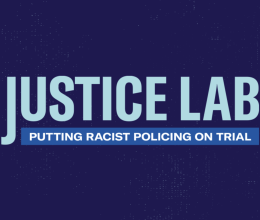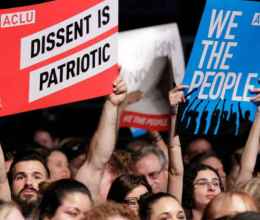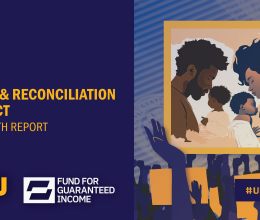BY CAITLIN MCLEAN
The ACLU of Louisiana reports unforeseen success teaming up with pro bono attorneys to challenge qualified immunity, including cases before the federal appellate court viewed as the nation’s most conservative.
Since its creation in 2020, the ACLU of Louisiana’s Justice Lab pilot program says it has won over 80 legal victories in state and federal courts, including 34 qualified immunity challenges. In total, the program has dealt with 59 qualified immunity cases. Qualified immunity wins, according to the group focusing on allegations of racist police practices, means a court ruled that law enforcement actions violated established rights, allowing a suit to proceed.
Nora Ahmed, the legal director for the ACLU in Louisiana, said the rights group notably has been “pleasantly surprised” at the “movement we’ve made” at the US Court of Appeals for the Fifth Circuit, which covers Texas, Mississippi, and Louisiana. “Getting reversals on qualified immunity—that has been something that we did not necessarily anticipate.”
The doctrine of qualified immunity created by the Supreme Court shields government officials from suits alleging violations of constitutional rights. In the law enforcement context, it has come under scrutiny since the 2020 killing of George Floyd, a Black man, by a white Minneapolis police officer prompted a nationwide reckoning over race and policing.
But a 2024 report by the public interest law firm The Institute for Justice underscores the difficulty in overcoming qualified immunity defenses. The study, which analyzed all federal qualified immunity appeals between 2010 and 2020 found that 59% of the time courts, ruled solely in favor of public officials. Courts resolved appeals in favor of accusers 24% of the time.
The Fifth Circuit, a more conservative court, resolved appeals solely in favor of accusers least often among all circuits, just 16% of the time.
But Justice Lab has prevailed in seven qualified immunity challenges before the Fifth Circuit. Four others are pending, and three were losses.
Potential Shift
Joanna Schwartz, a professor at UCLA School of Law who teaches and writes on qualified immunity, isn’t surprised by Justice Lab’s success before the Fifth Circuit as it could indicate a broader shift in how courts look at the issue.
“It seems that the tide is turning to some degree. And in fact, there are some real skeptics about qualified immunity on the court, and there have been a number of pretty passionately written reversals of lower courts on qualified immunity,” Schwartz said.
Notable Justice Lab wins at the Fifth Circuit include a ruling in June in which the court confirmed the denial of qualified immunity in the police shooting of a man who the group said was having a mental health crisis.
And last August, the Fifth Circuit upheld a lower court decision in the case of a man Justice Lab says was “illegally frisked” by police during an “unnecessary traffic stop.” The ruling allowed the case to move forward at the time.
‘Resources, Brainpower’
Schwartz credited Justice Lab success to the skill of the ACLU and its lawyers in arguing cases.
Fifty law firms, 19 legal clinics, and five community partners helped the Justice Lab litigate cases, securing $500,000 in settlements for clients’ families, according to the ACLU of Louisiana. Big Law partners include Linklaters, White & Case, and Freshfields Bruckhaus Deringer.
Noelle Williams, a Freshfields associate, said support for projects like the work being done at the ACLU of Louisiana is important to change “unfavorable law” in the Fifth Circuit.
“Putting all of that time and effort and resources and brainpower behind some of these social justice issues, is really the way to move the needle,” Williams said.
Ahmed said achieving Justice Lab goals will require similar efforts nationally.
“For the actual change that we’re looking for to occur across the country, a pilot program like this effectively needs to be running in every state with a distinct commitment to bringing these types of cases because it’s these types of cases that we strongly believe prevent the murders,” Ahmed said.





